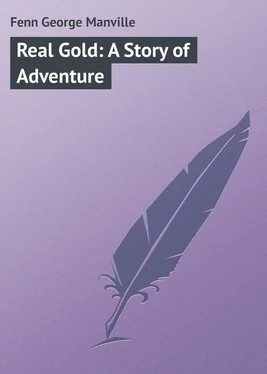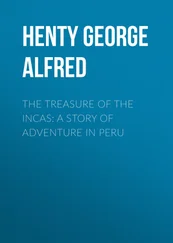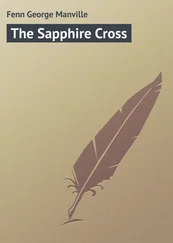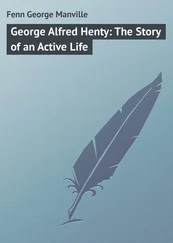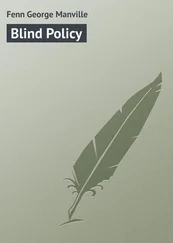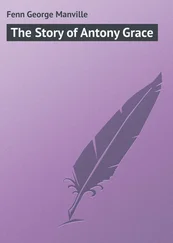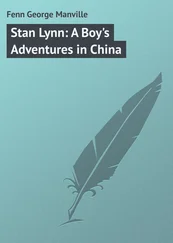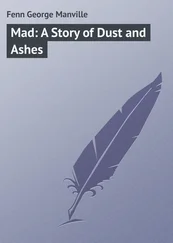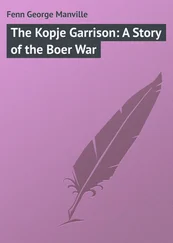George Fenn - Real Gold - A Story of Adventure
Здесь есть возможность читать онлайн «George Fenn - Real Gold - A Story of Adventure» — ознакомительный отрывок электронной книги совершенно бесплатно, а после прочтения отрывка купить полную версию. В некоторых случаях можно слушать аудио, скачать через торрент в формате fb2 и присутствует краткое содержание. Жанр: foreign_prose, foreign_children, на английском языке. Описание произведения, (предисловие) а так же отзывы посетителей доступны на портале библиотеки ЛибКат.
- Название:Real Gold: A Story of Adventure
- Автор:
- Жанр:
- Год:неизвестен
- ISBN:нет данных
- Рейтинг книги:5 / 5. Голосов: 1
-
Избранное:Добавить в избранное
- Отзывы:
-
Ваша оценка:
- 100
- 1
- 2
- 3
- 4
- 5
Real Gold: A Story of Adventure: краткое содержание, описание и аннотация
Предлагаем к чтению аннотацию, описание, краткое содержание или предисловие (зависит от того, что написал сам автор книги «Real Gold: A Story of Adventure»). Если вы не нашли необходимую информацию о книге — напишите в комментариях, мы постараемся отыскать её.
Real Gold: A Story of Adventure — читать онлайн ознакомительный отрывок
Ниже представлен текст книги, разбитый по страницам. Система сохранения места последней прочитанной страницы, позволяет с удобством читать онлайн бесплатно книгу «Real Gold: A Story of Adventure», без необходимости каждый раз заново искать на чём Вы остановились. Поставьте закладку, и сможете в любой момент перейти на страницу, на которой закончили чтение.
Интервал:
Закладка:
“And what a bridge,” muttered the colonel.
He might well exclaim, for it was formed in the narrowest part of the gloomy gorge, and though not more than five-and-thirty feet in length, it looked perilous in the extreme, being formed merely of a couple of thick ropes of twisted fibre, secured at either side round masses of rock, and with a roadway made by rough pieces of wood laid across and firmly bound to the ropes.
“A suspension bridge with a vengeance,” continued the colonel. “We shall never get the mules to cross that.”
And he had perfect warrant for his words. For some forty yards below, the water foamed along in a perfect torrent, falling heavily from a shelf above, and sending up quite a thick mist, which magnified the surrounding objects and added to the gloom of the place.
Perry felt appalled, but the halt was of short duration, for after turning to them and shouting something which was almost inaudible in the roar of the torrent, the Indian stepped on to the bridge, and walked coolly across, half hidden by the mist; while the mule which played the part of leader bent its head, sniffed at the stout boards which formed the flooring, stepped on and walked carefully across, with the bridge swaying heavily beneath its weight.
“Not so bad as it looked, my lad,” said the colonel, as the next mule followed without hesitation. Then, after a pause, their new Indian crossed, followed with the mule by which he had walked, and then the rest, including those from which the travellers had dismounted, for no one thought of venturing to ride across the chasm.
“Our turns now, Perry,” said the colonel. “How do you feel?”
“Don’t like it,” said Perry huskily.
“Summon up your nerve, my lad; forget that there is any torrent beneath you, and walk boldly across. Here, I’ll go first.”
“No, no, please don’t,” cried Perry, setting his teeth. “I’ll go.”
“Go on, then,” said the colonel.
The boy descended from the few yards of loose stony way to where the wet rough-hewn boards began, drew a deep breath, and stepped on to the bridge, conscious that the guide was looking back, and that the new Indian was at the other end, watching him earnestly, with his lips slightly parted and his teeth bared.
To Perry it was a sign that their attendant felt the danger of the place, and was watching to see him fall. And if he did, he felt nothing could save him, for he would be swept away in an instant down that narrow chasm full of rushing water, where it was impossible for any one to climb down and stretch out a helping hand.
One step, two steps, three steps, all descending, for the middle of the bridge hung far lower than the ends, and Perry could feel it vibrato beneath him, and his nervous dread increased. And yet it was so short a distance to where the Indians were waiting, as he stepped cautiously on till he was well past the middle, when all at once the sky above him seemed to be darkened over his head, there was a peculiar, whistling, rushing sound, and looking up sharply, Perry saw that the huge bird which had passed out of sight had wheeled round and was flying so close above him, that it seemed as if its object were to strike at him with its powerful talons.
As a matter of fact, the bird swept by five-and-twenty feet above his head, but it was near enough to destroy the lad’s balance as he started and bent down to avoid the fancied blow. The colonel uttered a loud cry of warning, and Perry made an effort to recover himself, but this stagger caused the bridge to sway, and in another moment or two he would have been over into the torrent had not the bridge vibrated more heavily as a guttural voice whispered to him:
“Quick! mano – hand!”
It was accompanied by a sharp drag as his own was seized, and, recovering his balance, he half ran – was half pulled – up the slope into safety on the other side.
Perry felt giddy and dazed as the Indian loosed his hold and hurried away among the mules, while before he had half recovered himself, his father had crossed and was at his side.
“Perry, my lad, you sent my heart into my mouth.”
“Yes,” faltered the boy. “It was very horrid. That bird.”
“It was startling, my lad, but you ought to be able to walk boldly across a place like that.”
“Ahoy! colonel!” came from the other side, as John Manning hailed them.
“What is it?” shouted back the colonel.
“Hadn’t I better go back, sir?”
“Back? No. Come over!”
John Manning took off his hat and scratched his head, looking down at the hanging bridge and then up at his master.
Just then there was a shout from Diego and some words in the Indian tongue, which resulted in the other Indian offering his hand to the colonel’s servant, who resented it directly.
“No,” he growled; “I’ll do it alone. One must be safer by one’s self;” and stretching out his arms like a tight-rope dancer, he came down cautiously, stepped on to the bridge and slowly walked across, the Indian following at a trot, as if astonished at any body finding so good a pathway difficult.
“I hope there ain’t many more o’ them spring playthings, sir,” said John Manning gruffly. “I thought Master Perry was gone.”
“Nonsense!” said the colonel shortly. “That great bird startled him. Forward again; the men are going on. – Perry, my boy, you must give that Indian lad a knife, or something as a present: he saved your life.”
“Yes, father,” said the boy, looking dazed and strange. “I – I’m better now.”
“Yes, of course you are. Pish! we mustn’t dwell upon every slip we have. There, think no more about it,” he continued, as he noticed the boy’s blank, pale face. “Go on, and mount your mule.”
“I think I would rather walk,” said Perry.
“Walk, then,” said the colonel shortly, and he went on and mounted his mule.
“Quick! mano – hand!” buzzed in Perry’s ear, and at the same time he seemed to hear the booming roar of the torrent beneath his feet, and the rush of the huge bird’s wings just above his head – “Quick! mano – hand!”
“I say, Master Perry, sir, don’t look that how,” said John Manning in a low voice; “you’re as white as taller candle. You’re all right now.”
“Yes,” said Perry, trying hard to recover his natural balance. “I’m all right now.”
“You’ve made the colonel look as black as thunder, and it wasn’t our fault. They’ve no business to have such bridges in a Christian country. But it was enough to scare any one, my lad. I thought that there bird meant to have you.”
“That was fancy,” said Perry hastily. “I ought to have known better.”
“No, it wasn’t fancy, my lad. I think he’d have had you, only seeing us all about made him give you up. But it’s all right.”
“All right?”
“Yes, sir, we’re on the c’rect track.”
“Of course we are,” said Perry, as they marched on once more behind the mules, followed by the Indian.
“You dunno what I mean, sir,” said John Manning testily. “I meant on the track for one o’ them di’mond valleys. Know what that bird was?”
“Yes; a condor.”
“Con grandmother, sir. It was a roc, one o’ them birds as carried Sindbad out o’ the valley. This was only a chicken, I should say; but it was a roc, all the same.”
“What nonsense!” said Perry. “That was all fancy tale and romance.”
“Not it, sir. I might have thought so once, but I don’t now. Let me ask you this, sir,” said Manning: “suppose there was no way out or no way into the valleys we’ve come along, could you climb up the sides?”
“No, of course not.”
“And if you’d heard tell of birds with wings thirty foot across before you’d seen ’em, would you have believed in them?”
Читать дальшеИнтервал:
Закладка:
Похожие книги на «Real Gold: A Story of Adventure»
Представляем Вашему вниманию похожие книги на «Real Gold: A Story of Adventure» списком для выбора. Мы отобрали схожую по названию и смыслу литературу в надежде предоставить читателям больше вариантов отыскать новые, интересные, ещё непрочитанные произведения.
Обсуждение, отзывы о книге «Real Gold: A Story of Adventure» и просто собственные мнения читателей. Оставьте ваши комментарии, напишите, что Вы думаете о произведении, его смысле или главных героях. Укажите что конкретно понравилось, а что нет, и почему Вы так считаете.
